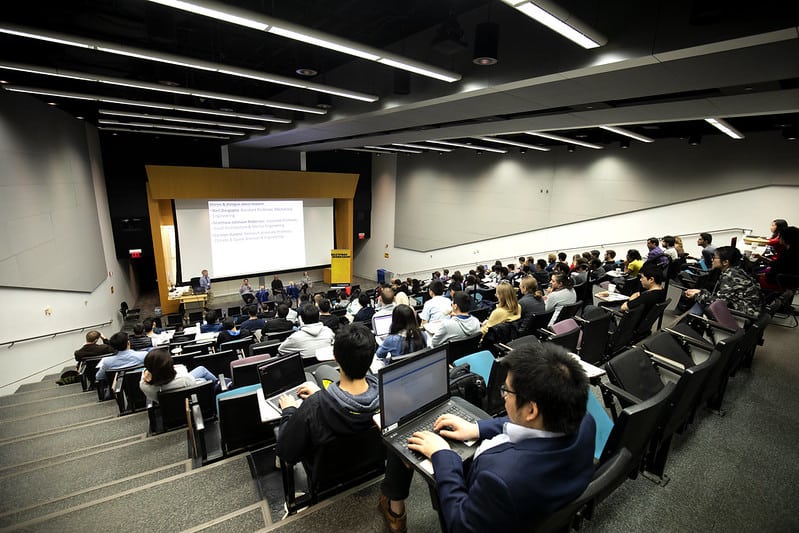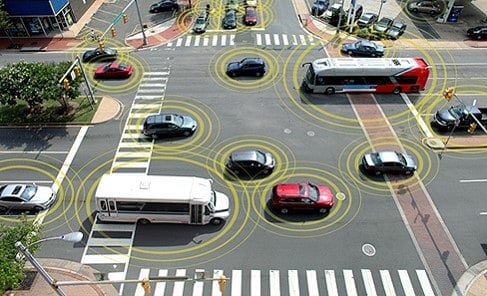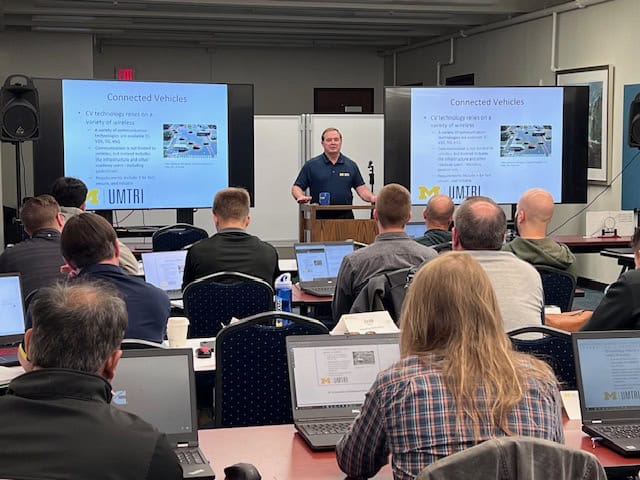Courses

Foundations of Mobility
Led by Jim Sayer. Faculty include Carol Flannagan and Henry Liu.
Technology and urbanization are changing the way we move about, creating unprecedented societal, environmental, economic, and behavioral challenges. The Foundations of Mobility online courses provide the systems-level knowledge required to address these complex challenges. Learn from expert faculty from six different colleges across the University of Michigan. Explore real-world applications and solutions. Leave with a distinguished credential from the leaders in mobility research and education.
COURSES:
Social & Behavioral Issues
Mobility Data
Financing the Transportation and Mobility Ecosystem
Mobility and the Environment
Planning, Urban Design, and Systems Integration
Law, Policy, and Regulation
Mobility & Technology
Mode Choice
Academic Courses
IOE 436. Human Factors in Computer Systems (Paul Green)
Prerequisite: IOE 333. (3 credits)
This course discusses how to design and evaluate computer systems for ease of use. Topics to be covered include keyboards and how people type, vision and video display design, human body size and computer furniture, regulations concerning working conditions, software issues, methods for studying user performance, documentation, and information systems of the future.
IOE 437. Automotive Human Factors (Paul Green)
Prerequisite: Senior Standing and IOE 333/334 or Graduate Standing. (3 credits)
This course provides an overview of human factors and driving to help engineers design motor vehicles that are safe and easy to use and to provide basic knowledge for those interested in conducting automotive human factors/ergonomics research. The focus is on the total vehicle (all aspects of vehicle design) and for an international market. Key topics include design guidelines, crash investigation and statistics, driving performance measures, vehicle dynamics, occupant packaging, and driver vision.
ISD 599F. Vehicle Crashworthiness and Occupant Protection (Jingwen Hu)
Prerequisite: Basic knowledge of finite element modeling.
This course will teach the basics of vehicle crashworthiness and occupant protection along with finite element modeling for vehicle safety designs. Specifically, upon completion of this course, the students should be able to understand the general procedures and state-of-the-art tools to evaluate vehicle crash safety, apply fundamental principles to interpret injury mechanisms, safety concerns, and design benefits in different types of crashes, and assess safety systems using finite element crash simulations. This course will feature three projects, including a modeling project, a literature review project, and a group project on vehicle crash safety designs.
Human Factors Engineering
Offered since 1959, led by Paul Green.
Human factors engineering concepts apply to almost any situation where a person is using a system, product, or service. With this hands-on, multidisciplinary training program—now in its 65th year—you can gain essential design experience and learn how to solve a wide range of human factors engineering and ergonomics problems.



